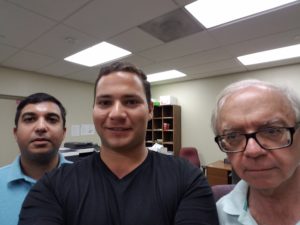Biosa
A point of care hemoglobin A1c device that makes use of state of the art oxygen consumption/peroxide detection system and which incorporates nanoparticle silica to suspend enzymes for greater reaction efficiency.
It is the goal of BIOSA Technologies to make a self-contained point of care detection system for HbA1C from whole blood derived from finger prick sample. As such, the proposed device will require minimum previous medical training, for use even outside of a clinical setting such as rural areas and international locations. The proposed device will provide a personalized HbA1C reading for clinical diagnosis and greater monitoring of patient status, as diabetic patient compliance and adherence to low sugar diets can often be difficult. Furthermore, the technologies employed are intended to provide a low-cost alternative diagnostic method; enabling a fast, efficient turnaround of a result informing the patient and/or professional alike how and when to medicate and seek appropriate further medical attention as increased levels of blood HbA1C has also been known to be correlated with cardiovascular pathologies.
Going through the UCF I-Corps Program, Biosa was able to realize that the customer they were targeting was not the ideal customer for their product. Understanding who the customer was truly going to be allowed Biosa to make major pivots and redefine the target market. Biosa’s biggest take-away from the UCF I-Corps program was to listen to the customer.
PI: Dr. Terry McCaffrey has worked for such companies as Beckman-Coulter and Roche Diagnostics. He has over 30 years of experience in the biomedical and biochemistry field. Both Nestor and Nicholas will act as entrepreneurial leads. Nicholas Ledra is a graduate student specializing in Biochemistry and Nestor Maceda-Johnson is completing his undergraduate degree in Chemistry.






